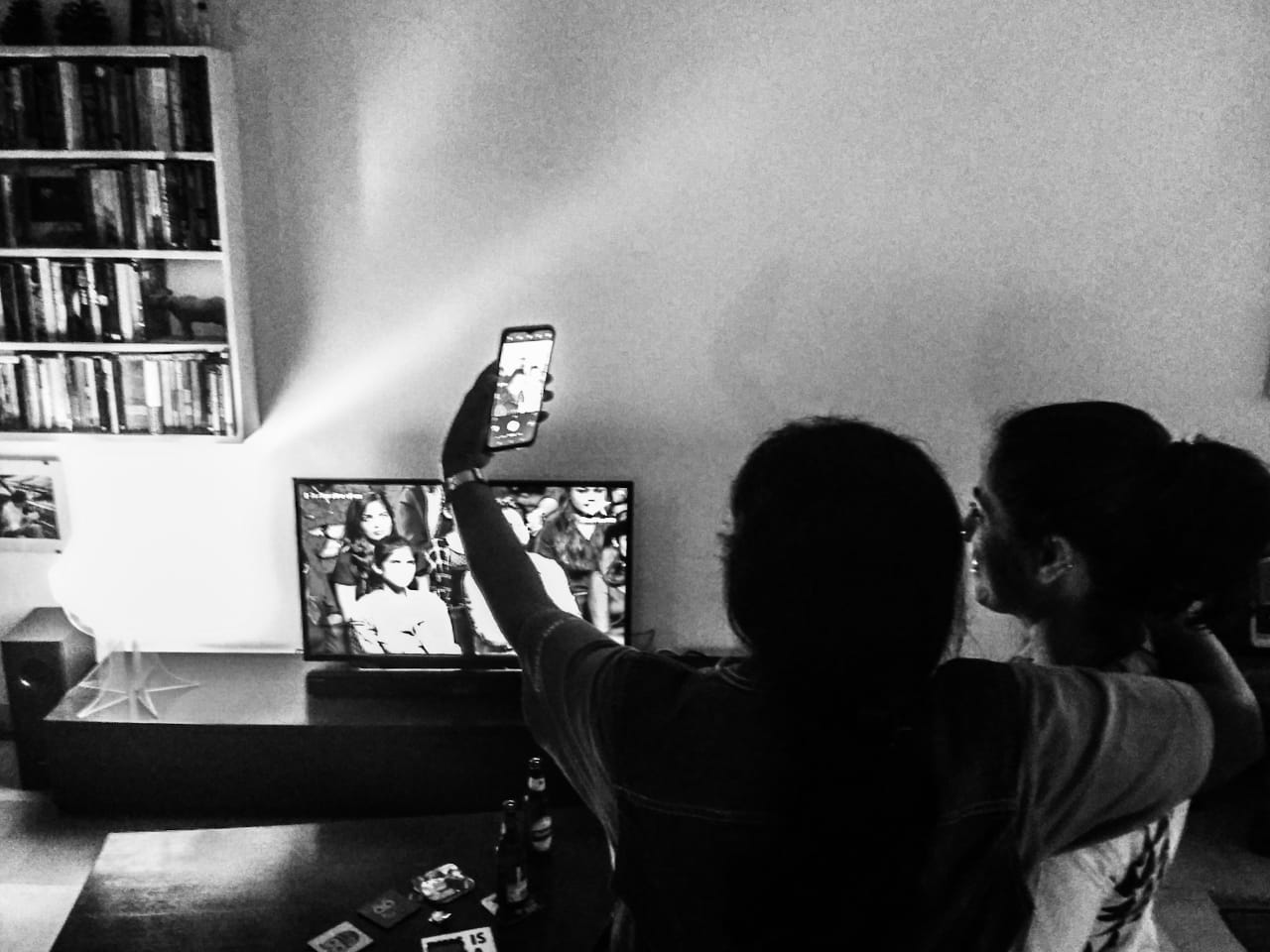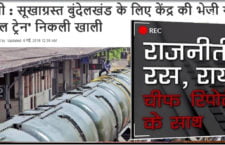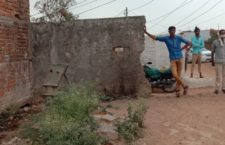Continuing our recurring series featuring conversations between Disha Mullick and Kavita Bundelkhandi, Khabar Lahariya’s co-founders, in times of the new normal.
Aiming to focus on the myriad meanings of keeping safe and sane, Delhi-U.P., while reporting in the north Indian hinterlands during the ongoing global health crisis, these dispatches are illustrative of the unique diverse identity of Khabar Lahariya, and the bonds we forge as women at work
Dispatch IX
D: How’re you doing? Is it feeling like we’re over the hump? Delhi has been doing well, by most accounts. Flooding problems in the office have taken over the virus.
K: There’ve been two deaths in Banda. And cases have reached my parents’ home in Karwi. You wouldn’t think it if you looked around, though. People are out and about as normal. Roads are busy. There’s no real force that’s being exerted to keep people disciplined.
D: Are your parents OK? I hope they aren’t going out anywhere. It’s worrying if there are cases close by.
K: My father thinks coronavirus is a bit of a hoax, actually. I’m exhausted from arguing with him. Both the cases closeby are friends of my father’s – a lawyer and the lekhpal. My father’s up in arms that they’ve taken his friends away for no reason. Rumour has it that they’re just harassing people saying they have coronavirus.
D: Why would they do that! The administration is already struggling to handle the real cases they have.
K: I’ll tell you why. People watch the news and see all these influential people – Amitabh Bachchan and Amit Shah – and say that they must have been staying indoors and washing their hands and sanitising manically. And they still got infected. So that’s obviously not keeping it away. And here where we have a different way of taking care of ourselves when we’re ill, they are catching poor people and labour and taking them away saying they’ve been infected!
D: Well we should do some stories about this, it’s no use people getting infected by rumours and refusing to go get checked or treated, just as the infection is spreading here…
K: Yes. It’s a strange illness right, there’s so little information and people are scared of being shut away or even dying on their own. So it’s ripe for rumor-mongering.
D: Is everyone doing OK? I feel that we’ve been tense about people getting sick for so long that it’s become embedded in our minds, the worry. But in so many ways the risks are so much higher now. And what about dengue and malaria – which we report on so much at this time. How are the rates of those diseases doing?
K: We have to report on this. We’ve hardly seen any dengue drives or any spike in cases, but it’s because it isn’t really getting coverage. And people are definitely scared to access the health facilities. So it’s likely to be affecting records of diseases. This month Amavasya fell on a Monday, so it’s called bargadhai amavasya, and there’s a ritual and a fast that married women keep for their husbands’ long lives. They have to dress up – 16 shringar! – and do 111 parikramas of a peepal tree. So we didn’t discuss stories, or viruses, we discussed that at length in our last reporters’ meet.
D: Seriously. Can’t get enough of vrat gossip Kavita. Don’t tell me who. You can tell me the details of the 16 shringar.
K: Yes. You already know. We were teasing her, saying it was her first bargadhai Amavasya and so she must have kept the fast. And it turned out that things were really bad at home. Lockdown, no one is going out, everyone’s on the internet. Her husband’s time pass is watching her, or keeping an eagle eye on her Facebook timeline and seeing who may be posting poetry there, or watching videos of what newly married women should not be doing. And our friend is doing lots of them! And so, domestic discord in the season of sawan ensues. She’s gone back to her parents’ place now, to get some distance.
D: I really shouldn’t let it get under my skin. But it does.
K: She’s at her wits’ end. We told her to draw her boundaries for what kind of behavior she should not tolerate – and said we’d be happy to intervene if she needs it. But she doesn’t. She’s more than able to go file a case on her own.
D: It just makes you think, how hard and long and thankless this fight is, and how we can dream of having 100s of rural women reporters someday when the heroes we’ve already got are still battling their demons of patriarchy. And it never ends. You can never say, we’ve dealt with this, a million times, and now it’s done.
K: Tell me about it. Every time something like this happens I think of every case we’ve ever dealt with – Rizwana’s, Shyamkali’s, Geeta’s, Shivdevi’s, so many more. I had to do a session on mental health last week and I had so many things to say on that panel. But as luck would have it, my internet was so bad and I kept dropping off; I tried using Meera’s internet and her phone got discharged. And the little I was able to connect for, everyone was only speaking English — so the only mental health I could think of was my own, completely ruined!
D: I’m hatching a plan to tackle that, Kavita. Can’t have you losing your sanity. And just before yours… is it your 40th birthday this week?
K: Now you know as well as I do…
D: Better I think, Ms 30-till-I-die.
Also read:
Dispatch One | Dispatch Two | Dispatch Three | Dispatch Four | Dispatch Five | Dispatch Six | Dispatch VII | Dispatch VIII


